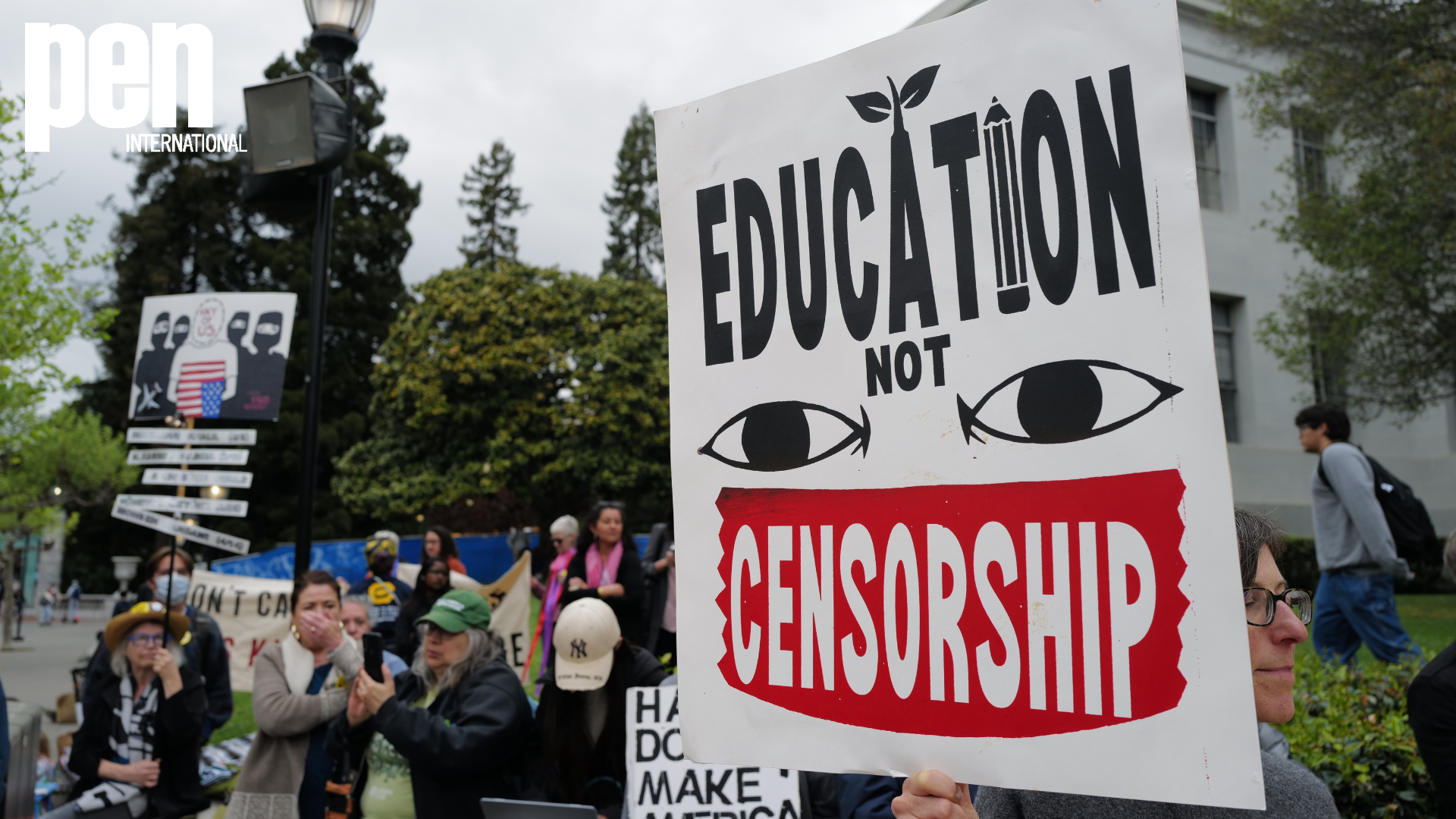United States: Educational censorship poses serious human rights threat, warn PEN International and PEN America
Photo credit: Phil Pasquini/ Shutterstock
Joint submission to the UN documents broad state and federal efforts to undermine academic freedom
“What we’re seeing in the United States is part of a growing global trend of censorship that threatens freedom of expression,” said Romana Cacchioli, Executive Director of PEN International. “When governments restrict what can be taught or read, they directly undermine the rights of students and educators, and public access to information. Such censorship stifles creativity, silences diverse voices, and erodes the right to seek, receive, and share knowledge. The United States must be held accountable, and we urge UN member states to actively press for the protection of free expression, cultural rights, and academic freedom—all of which are essential for a free society.”
27 August 2025: Ahead of the United Nations Universal Period Review (UPR) pre-session for the United States, PEN International and PEN America are highlighting violations of the rights to education, free expression, and non-discrimination stemming from recent state and federal efforts to censor colleges and universities.
“We need to recognise what is at stake for our students and our democracy, when higher education comes under attack in the United States,” said Amy Reid, PEN America’s Freedom to Learn Interim Program Director. “Our national commitment to academic freedom, and to the rights of all students to an education free from government censorship, has allowed higher education to flourish in this country. As a result, we have witnessed decades of scientific and medical breakthroughs, a thriving arts sector, and real benefits to communities across the country. We can’t afford to compromise our students’ human rights.”
On April 7, PEN America and PEN International submitted a joint report to the United Nations Universal Periodic Review (UPR) of the United States, scheduled for November 2025. The report documents violations of the rights to free expression, education, and non-discrimination, highlighting the profound impact of educational gag orders, DEI bans, curriculum restrictions, and attacks on tenure, faculty rights, and institutional autonomy. These measures disproportionately affect students from marginalised communities, including students of color, women, LGBTQ+ students, students with disabilities, and those from low-income backgrounds.
State-level efforts to censor higher education
Censorial attacks by states and the federal government targeting higher education have risen dramatically since 2021, with 2025 setting disturbing new records for the number of state bills and policies introduced and enacted across the country. In the context of federal actions, these legislative initiatives undermine the principles of academic freedom and infringe on the rights to education, free expression, and non-discrimination, recognied by the UN as universal human rights.
PEN International and PEN America call on the UN member states to recognize this wave of censorship in the United States higher education as a grave threat to democracy and human rights. They urge the United States government to repeal executive orders that contribute to the nationwide censorship of public education, particularly those targeting women, people with disabilities, and ethnic, sexual, and gender minorities.
The joint submission draws attention to:
State-level legislation and policies introduced since 2021 that explicitly censor topics and materials addressed in college and university classrooms.
State-level legislation and policies that undermine free expression on campuses by banning certain programming, weakening tenure protections for faculty, or otherwise breaching the principle of institutional autonomy that supports academic freedom for faculty and students.
Recent federal orders and actions that expand the scope of these attacks, threatening the rights of specific students and programs designed to ensure access to higher education.
The Universal Periodic Review is a mechanism of the UN Human Rights Council that encourages transparency and accountability in the human rights records of Member States, including the United States. The United States has threatened to boycott these proceedings, making it one of the few countries to do so since the mechanism was established in 2006.
Note to Editors:
For more information, please contact Alicia Quiñones, Head of the Americas Region, at PEN International, email: [email protected]
For media queries, please contact Sabrina Tucci, PEN International Communications and Campaigns Manager, [email protected]

